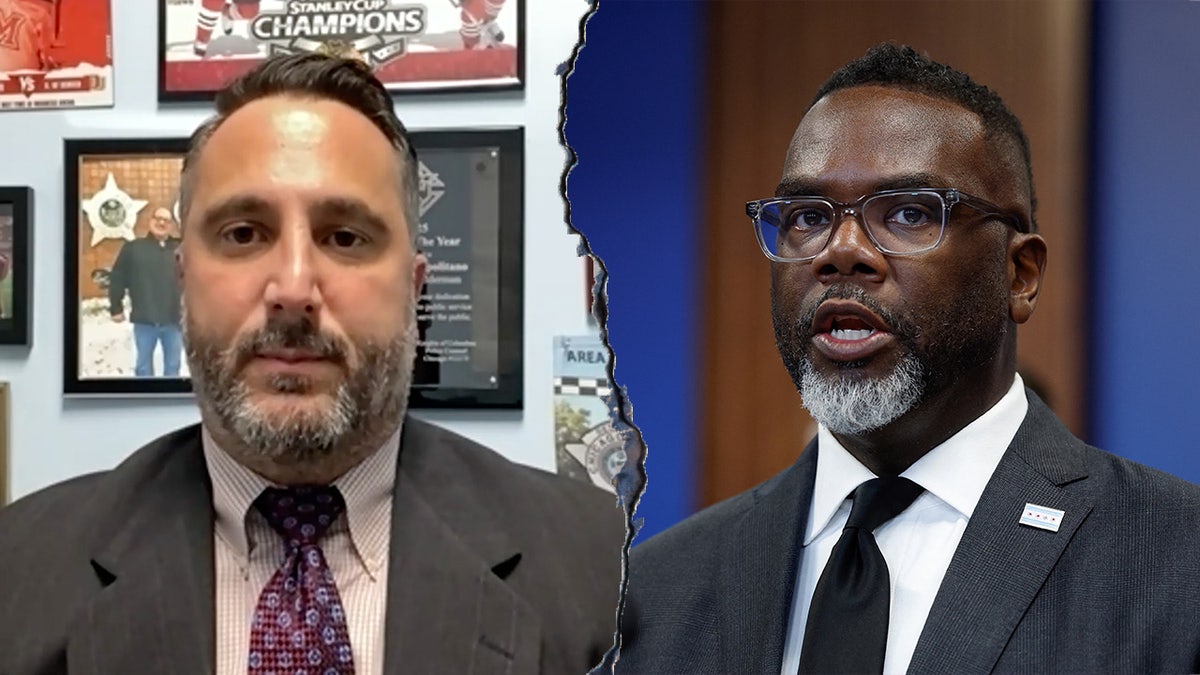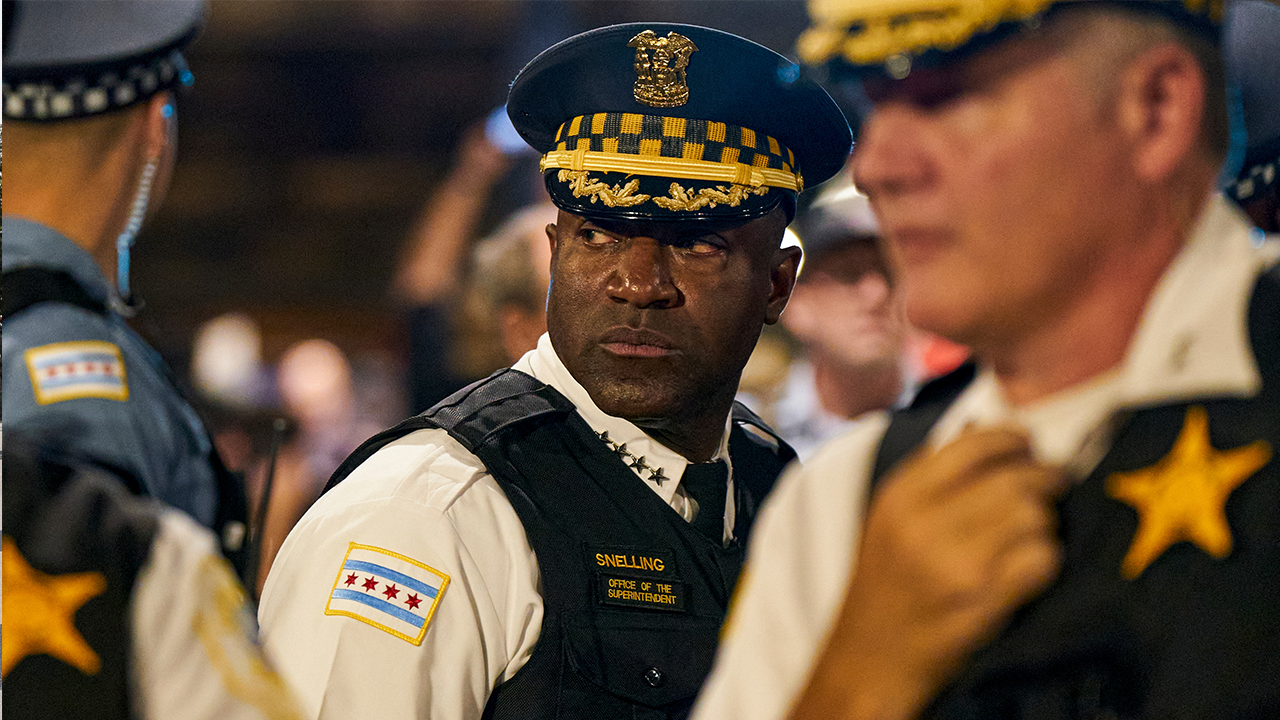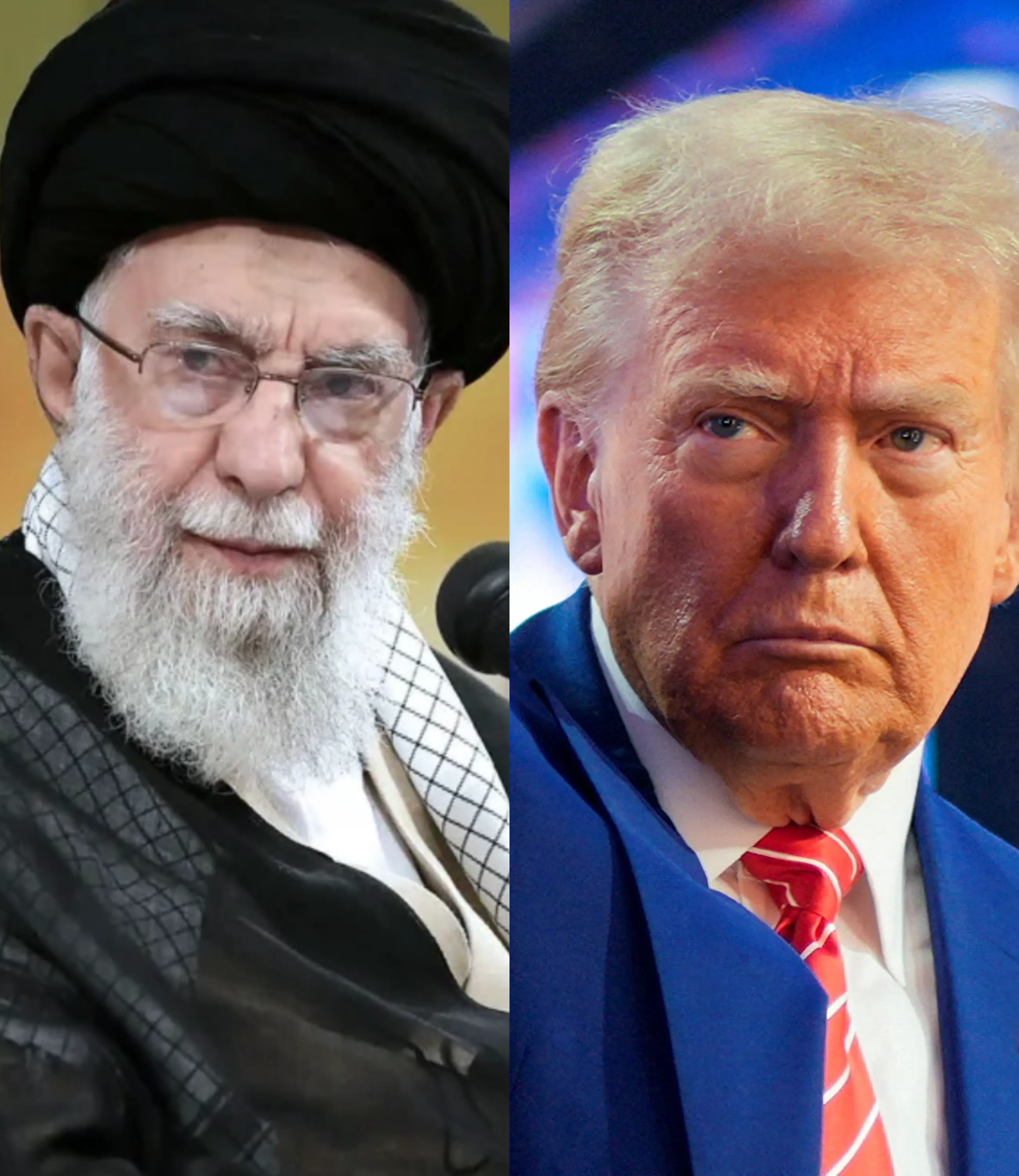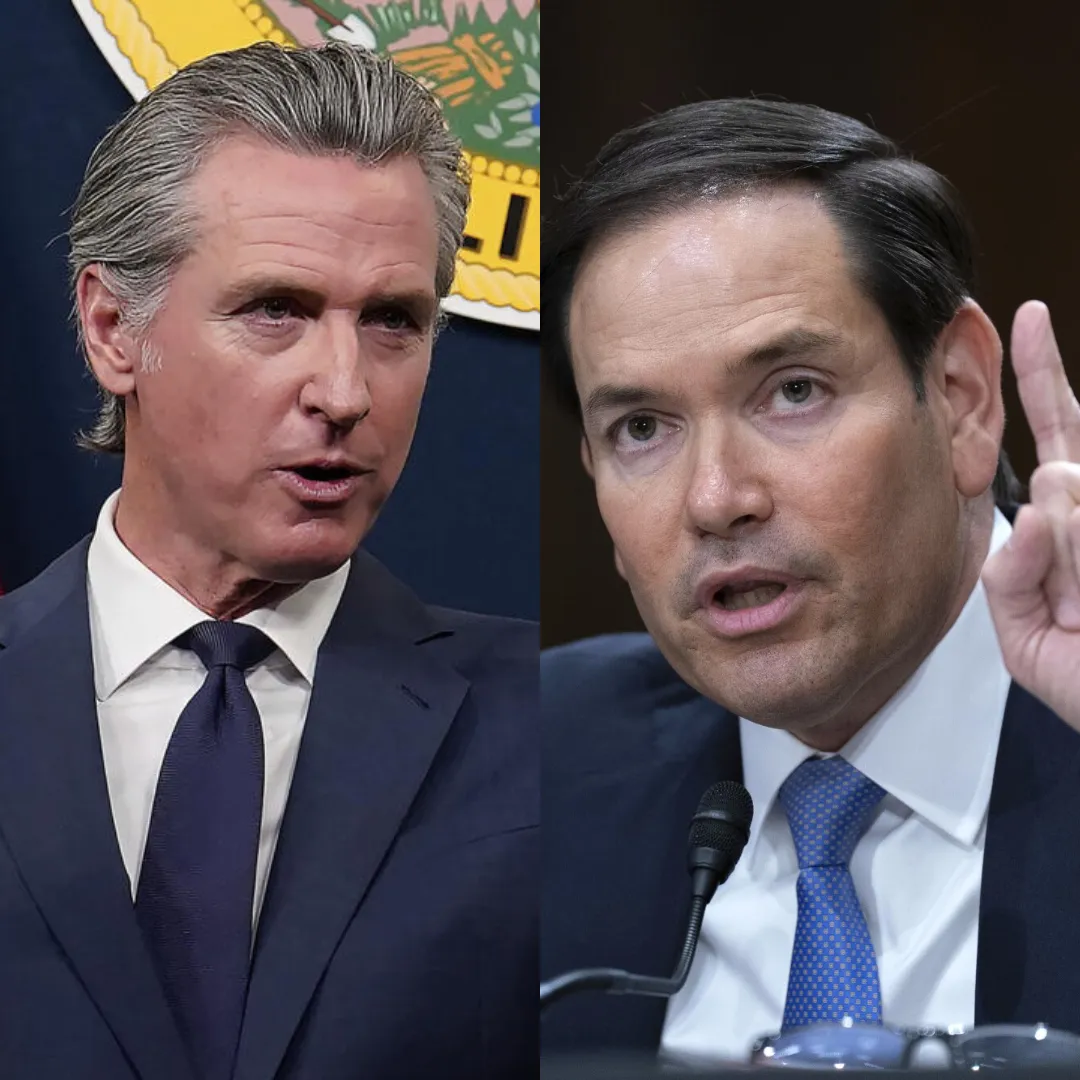
In a shocking revelation, it was reported that Chicago Police Department (CPD) officers were ordered not to respond to a violent ambush of U.S. Customs and Border Protection (CBP) agents, leaving federal law enforcement officers to fend for themselves during a dangerous confrontation in Southwest Chicago.
The incident has raised serious concerns about the relationship between local police and federal agencies, particularly amid growing tensions surrounding immigration enforcement.
The attack, which took place on a Saturday, involved CBP agents being surrounded by a large crowd after they were rammed by two vehicles driven by suspects identified as Marimar Martinez and Anthony Ian Santos Ruiz.
The suspects are facing serious charges, including assaulting federal officers, impeding law enforcement, and interfering with federal agents’ duties. The situation escalated quickly, with one of the assailants, Martinez, being injured by gunfire as agents responded in self-defense.
Tricia McLaughlin, a spokesperson for the Department of Homeland Security (DHS), confirmed the incident and highlighted the disturbing nature of the attack.
"We had federal agents surrounded by a mob, with no local law enforcement responding to their calls for help," McLaughlin said. The lack of support from local authorities has sparked outrage, especially considering the high level of threat faced by federal agents in such situations.
The controversy began when an internal police dispatch from the Chicago Police Department, later obtained by Fox News, revealed that CPD officers were specifically instructed not to respond to the call for assistance from federal agents.
According to the dispatch, the officers were told, “No units will respond to this as related,” and instructed not to assist CBP agents who were surrounded by a large crowd following the attack.

The dispatch confirmed that a team of officers was en route to the scene but were called off before reaching the location. A senior police source, speaking under the condition of anonymity, confirmed the authenticity of the dispatch message, calling it a "blatant cover-up."
The source claimed that officers who were initially sent to the scene were told to turn back after being informed that the CPD’s command structure had issued orders to avoid engaging with the federal officers.
The decision to stand down has caused outrage both within law enforcement circles and among political figures, as many see it as a betrayal of federal officers who were left to deal with a volatile and dangerous situation alone.
The lack of assistance during the incident, despite the presence of a large, hostile crowd, raises serious questions about the priorities and loyalties within the Chicago Police Department.
Despite the internal dispatch evidence, Chicago Mayor Brandon Johnson and the Chicago Police Department have denied claims that they withheld assistance from federal agents.
In an official statement released on Sunday, the CPD maintained that officers responded to the scene to manage public safety and traffic control. The department claimed that the investigation into the incident was being led by the FBI, and that officers had been involved in ensuring the safety of those present at the scene.
However, the CPD’s official response did little to quell the growing concerns about the lack of a coordinated law enforcement response. According to multiple sources within the department, the statement issued by the CPD was misleading and failed to accurately reflect the internal communications that had taken place in real time.
“It’s not true that we responded,” one senior Chicago police officer told Fox News. “The IRT team (Incident Response Team) was called off while they were on their way. They were told to disregard the scene and return to base.” The officer’s comments revealed a significant disconnect between what was reported to the public and the reality on the ground during the incident.
NEW: Multiple law enforcement sources confirm to @FoxNews that Chicago police officers were instructed by their Chief of Patrol to NOT respond to Border Patrol agents call for help yesterday after they were reportedly surrounded by a large crowd of protesters following a ramming… pic.twitter.com/ipPl22Ya3I
— Bill Melugin (@BillMelugin_) October 5, 2025
The CPD’s handling of the situation has also been questioned by senior law enforcement officials who believe that the department’s leadership failed to recognize the gravity of the attack on federal agents.
“I’ve never been more embarrassed to be a former member of this department,” one senior officer said. “We were all told to stay away while federal agents were under siege. How could anyone justify that?”
The failure to assist federal officers during the ambush has sparked a firestorm of criticism from political figures and law enforcement experts. Republican lawmakers have called for an immediate investigation into the actions of the Chicago Police Department and its handling of the situation.
Senator Ted Cruz (R-TX) slammed the CPD’s failure to respond, stating that it was “a disgrace to the men and women who put their lives on the line to protect this country.”
Cruz’s condemnation was echoed by several high-profile figures, including FBI Deputy Director Dan Bongino, who promised that the FBI would continue its mission to combat lawlessness despite local authorities’ failure to intervene.
“Trying to intimidate law enforcement will not slow us down,” Bongino stated. “The mission will not stop.” His comments underscored the broader issue of trust between local and federal law enforcement agencies, especially as tensions continue to rise over immigration enforcement.
The political ramifications of the incident are also significant. Illinois Governor J.B. Pritzker, speaking to CNN on Sunday, attempted to downplay the severity of the situation. “Well, we don’t have a lot of facts,” Pritzker said, casting doubt on the accuracy of the initial reports from ICE and federal officials.
Pritzker, who has been a vocal opponent of federal immigration policies, suggested that the incident might have been exaggerated by federal authorities and that the full details of the attack were still unclear.

However, Pritzker’s remarks were met with swift criticism from both Republican leaders and immigration reform advocates who accused him of deflecting responsibility and downplaying the safety of federal agents.
“This isn’t about political games,” said one Republican strategist. “This is about the safety of the men and women who are on the frontlines protecting our country from illegal activity and violence.”
The attack in Chicago is not an isolated incident but part of a larger crisis surrounding law enforcement at the U.S.-Mexico border. The Biden administration’s approach to immigration and border security has led to increased tensions between federal and local authorities, with many cities—particularly those with large immigrant populations—pushing back against federal immigration enforcement policies.
In Chicago, the growing unrest over the city’s role in supporting federal immigration agencies has raised alarms among local law enforcement officers who feel caught in the middle of an ideological battle over immigration.
While some members of the CPD have expressed frustration with federal immigration enforcement policies, others believe that it is crucial for law enforcement to work together to ensure the safety of the public and the security of U.S. borders.
As the national debate over immigration and border security continues, incidents like the one in Chicago serve as a reminder of the complex relationship between local and federal law enforcement.
The failure of the CPD to respond to the attack on federal agents is just one example of how political tensions surrounding immigration are influencing the behavior of law enforcement agencies.
The attack on federal agents in Chicago and the subsequent refusal by local police to assist them has raised serious concerns about the state of law enforcement in the United States.
The incident highlights the growing divide between federal and local authorities on issues of immigration and public safety, with local police increasingly reluctant to support federal agencies enforcing immigration laws.
As the investigation into the incident continues, the failure of the Chicago Police Department to intervene will likely be a focal point of the broader conversation about law enforcement’s role in immigration enforcement.
The political fallout from the incident will undoubtedly reverberate in both local and national politics, with key figures on both sides of the aisle pointing fingers and demanding accountability.
For now, the question remains: Will local law enforcement continue to stand down when federal agents need help, or will the failure to act in this case serve as a turning point for greater cooperation between local and federal agencies? Only time will tell.




